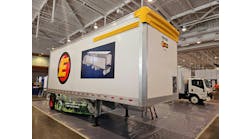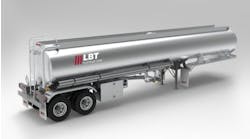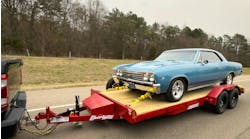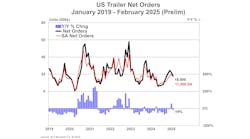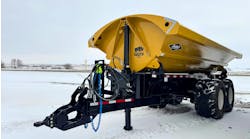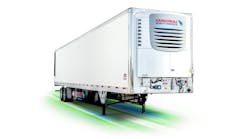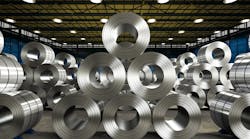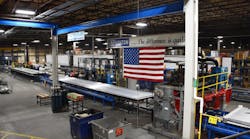Trailer makers and truck-body builders will have to make company-by-company requests for exclusions from the Trump administration’s steel and aluminum tariff plan, according to a Federal Register notice published Monday. Trade organizations, which support an industry-wide process to ensure markets would not be disrupted by the proposed tariffs, are scrambling to reply during the rulemaking’s 60-day comment window.
“These procedures will allow the administration to further hone these tariffs to ensure they protect our national security while also minimizing undue impact on downstream American industries,” said Trade Secretary Wilbur Ross. “Starting [March 19], domestic industry will be able to apply for exclusions through a fair and transparent process run through Commerce’s Bureau of Industry and Security.”
Ross, in consultation with other administration officials, will evaluate exclusion requests, taking into account national security considerations, according to the Commerce Department statement. In that evaluation, the secretary will consider whether a product is produced in the U.S. of a satisfactory quality or in a sufficient and reasonably available amount.
But domestic production and sufficient availability worry a range transportation equipment manufacturers, and the ability of U.S. suppliers to meet immediate needs is the basis for their objection to the tariff plan. Trailer and truck-body builders have argued that the plan that could jeopardize current American jobs in hopes of revitalizing steel and aluminum production in the U.S.
The Motor Equipment and Manufacturing Assn. said in a March 15 open letter to members that “tariffs are not the cure we need,” and in an update March 20 announced plans for a webinar to explain the process.
“The key takeaway is that only individual companies and organizations that utilize these materials can apply for exclusions, despite MEMA urging the Trump administration to permit trade associations to apply on behalf of members,” the note said.
The Truck Trailer Manufacturers Assn., in a December letter to Ross, argued that tariffs “would instantly create a sole-source, anti-competitive monopoly” for aluminum sheeting used on the vast majority of van trailers sold in the U.S.
TTMA President Jeff Sims told TBB Tuesday the organization is developing a formal response to the interim final rule.
The IFR says that for an exclusion request to be considered, the requester must provide a full factual description of the specific product, its properties, and its quantity.
Organizations filing an objection should also provide factual information on the production capabilities at steel or aluminum manufacturing facilities that they operate in the U.S.; the availability and delivery time of the products that they manufacture relative to the specific steel or aluminum product that is subject to an exclusion request; and discussion on the suitability of its product for the application or applications identified by the exclusion requestor.
Forms are now available for submitting exclusion requests for steel (docket number BIS-2018-006) and aluminum (docket number BIS-2018-0002).
